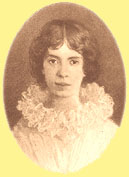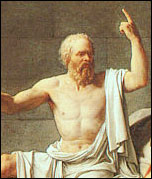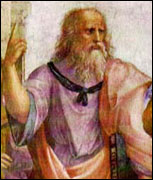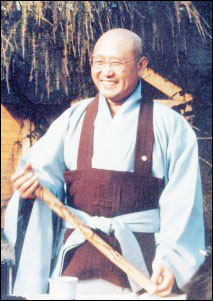Preface:
I was listening to on KSFO 560 AM
from 11 pm-2 am where Ian Punnett interviewed the cardiologist
Dr. Pim van Lommel on
"Near Death Experiences".
His book Consciousness Beyond Life:
The Science of the Near-Death Experience was recently published (June 8, 2010). Based on 30 years of
hospital research, Dr. van Lommel concludes that consciousness is nonlocal and does not reside in our brain,
and even survives bodily death. Usually I go to bed around 4-5 am, but thought I should sleep
right away to experience the "NDE Light Tunnel" as depicted in
Ascent of the Blessed (circa 1490)
by Hieronymus Bosch (1450-1516).
However I postponed sleeping to check Edward Hirsch's How to Read a Poem
for some quotes cited in his Stanford Poetry Colloquium (4-27-2010)
which I typed from my Notes
earlier today at Stanford Green Library. Hirsch writes “'Life is a spell so exquisite
that everything conspires to break it,' Emily Dickinson said. One reason I like staying
up to read long after everyone else has gone to sleep is that in the middle of the night
not much conspires to break that spell. I like the dark hour when the secular world recedes
and consciousness is loosened for poetic reverie.” (p. 250). Hirsch cites Walt Whitman's
1881 poem "A Clear Midnight" (p. 245),
Wallace Stevens' 1947
poem "The House
Was Quiet And The World Was Calm" (pp. 250-251), and Emily Dickinson's 1874 Poem 1331 "Wonder— is
not precisely Knowing" (p. 257). Earlier Hirsch had mentioned Emily's biographer Richard Sewall saying
"Emily saw herself as a poet in the company of Poets, calling them dearest ones of time, strongest
friends of the soul, her Kinsmen of the Shelf, her enthralling friends, the immortalities." (p. 7).
Suddenly, I realized that I was in the company of three enlightened American poets— Emily Dickinson,
Walt Whitman, and Wallace Stevens. Before I knew it, I had gathered six books to my bed written by sages
on the subject of knowledge. Below are the passage read that night as I communed with these "dearest ones
of time, strongest friends of the soul" so I may share some wonderous insights with others.

Emily Dickinson
(1830-1886)
|
Wonder— is not precisely Knowing
And not precisely Knowing not—
A beautiful but bleak condition
He has not lived who has not felt—
Suspense— is his maturer Sister—
Whether Adult Delight is Pain
Or of itself a new misgiving—
This is the Gnat that mangles men—
Emily Dickinson's Poem 1331 (1874)
Thomas H. Johnson (Editor),
Complete Poems of Emily Dickinson
Little Brown & Company, Boston, 1960 (p. 577)
|
.jpg)
Lao Tzu
(604 BC-517 BC)
Chinese silk painting,
British Museum
|
To know yet to think that
one does not know is best;
Not to know yet to think that
one know will lead to difficulty.
It is by being alive to difficulty
that one can avoid it.
The sage meets with no difficulty.
It is because he is alive to it
that he meets with no difficulty
Lao Tzu, Tao Te Ching, LXXI
translated by D.C. Lau,
Penguin Books, Baltimore, 1963 (p. 133)
|

Confucius
(551 BC-479 BC)
Postage stamp: China 741
issued August 27, 1947
|
Confucius said, "Yu, shall I teach you what knowledge is?
When you know a thing, to hold that you know it;
and when you do not know a thing,
to allow that you do not know it—
this is knowledge.
Confucius, Analects, II.17
translated by James Legge, Confucian Analects,
Clarendon Press, Oxford, 1893; Reprinted
Wei Tung Book Store, Hong Kong, 1969 (p. 11)
|

Socrates
(469 BC-399 BC)
by Jacques-Louis David
Death of Socrates (1787)
Metropolitan Museum
of Art, New York
|
The sense of wonder is the mark of the philosopher.
Philosophy indeed has no other origin.
Socrates in Plato, Theaetetus, 155d
translated by F.M. Cornford (p. 860)
Neither perception nor true belief can be knowledge...
you know what you do not know... nor have I any of that
knowledge possessed by all the great and admirable men
of our own day or of the past.
Socrates in Plato, Theaetetus, 210bc
translated by F.M. Cornford (pp. 918-919)
I am quite conscious of my ignorance...
I know what I do not know.
Socrates in Plato, Apology, 21d
translated by Hugh Tredennick (p. 8)
Plato: The Collected Dialogues
Edited by Edith Hamilton & Huntington Cairns
Bollingen Series LXXI, Princeton University Press, 1961
|

Plato
(428 BC-348 BC)
by
Raphael Sanzio
Vatican Museum
|
So that for me the present outcome
of the discussion is that I know nothing.
Plato, The Republic, I.354b
translated by Paul Shorey (p. 605)
Then wisdom or being wise appears to be
not the knowledge of the things which we do
or do not know, but only the knowledge that
we know or do not know?
Plato, Charmides, 170d
translated by Benjamin Jowett (p. 116)
Plato: The Collected Dialogues
Edited by Edith Hamilton & Huntington Cairns
Bollingen Series LXXI, Princeton University Press, 1961
|
.jpg)
Swami Chinmayananda
(1916-1993)
|
Kena Upanishad II.2
The disciple said: I do not think I know It well,
nor do I think I do not know It.
He among us who knows the meaning of
"Neither do I not know, nor do I know"— knows Brahman.
translated by Swami Nikhilananda
The Upanishads, Volume 1
Katha, Isa, Kena, and Mundaka,
Harper & Brothers, New York, 1949 (p. 237);
Commentaries
*************************************************
The disciple said: I do not think that 'I know it well'
But not that I do not know; I know too.
Who amongst us comprehends It both as
the Not known and as the Known— he comprehends It.
Swami Chinmayananda,
Discourses on the Kenopanisad II.2
Govindas B. Parikh for Chinmaya Book Trust
Madras, India, 6th Edition, 1965 (pp. 97-98);
Commentaries
|

Zen Master Seung Sahn
(1927-2004)
|
Kong-an #56: Give Me a Don't Know Sentence
Once, when Zen Master Man Gong was staying at Jeong Hae Sah Temple,
a student came to his room, bowed, and said, "Zen Master, since I came
to this temple, I have understood many things. So today, I ask you to
give me a don't-know sentence."
Without a moment's hesitation, Man Gong
thrust his fist to within a half inch of the student's face. The student
gasped and instantly attained enlightenment. He bowed deeply and said,
"Thank you for your teaching."
1. What did the student attain?
2. Give me a don't know sentence.
3. Man Gong punched his fist to within a half inch
of the student's face. What does this mean?
Commentary: Socrates used to walk through the streets and markets
of Athens, telling people as he passed, "You must understand your true self,
you must understand your true self." One of his students asked him, "Teacher,
do you understand your true self?" I don't know," he replied, "but I understand
this don't-know." Man Gong's action and Socrates' action, are they the same or
different? If you attain that, then you attain your true self. If you don't
understand, go to the kitchen and drink cold water.
Zen Master Seung Sahn,
The Whole World Is A Single Flower
365 Kong-ans for Everyday Life
Charles E. Tuttle Co., Rutland, VT, 1992 (pp. 46-47)
|
Further Commentaries: Emily Dickinson—
Dickinson's poems of cognitive or spiritual quest usually demand of the searcher unconditional
belief in the particular revelation the quest vouchsafes. Rather than ever definitively avowing
or disavowing any belief, however, Dickinson typically hesitates at the moment of commitment and
often expresses intense anguish about her uncertainty. Such poems of bafflement would represent
a failute of the poet's enterprise if the enterprise were construed primarily as the successful
or at least relentless pursuit of knowledge. As important to Dickinson, however, is the affect
of the sublime. And the quintessentially sublime feeling of "Wonder" normally requires "not
precisely Knowing / And not precisely knowing not—" [1331]. That is, wonder is poised at
the transition between trauma and sublimation, after habitual forms of understanding have been
breached but before some heightened state has brought a new cognitive equilibrium. Rather than
herself or her persona fully undergoing the experience of the sublime and thus either dispelling
the wonder or installing the poem's protagonist as a new object of wonder. Dickinson defers such
finality beyond the poem. She reserves it for the responses of a reader she declines to influence
further.
— Gary Lee Stonum, The Dickinson Sublime,
University of Wisconsin Press, Madision, 1990, pp. 166-167
Highlighting, by implication, the experiential pain and suspense involved in our encounter with
our being, Dickinson reveals what constitutes a state of wonder [in Poem 1331]. Ambivalence is
integral to poetic creation which enables man to endure the laceration of everlasting questions.
The wonder of our being is a "beautiful but bleak condition" which we must experience by feeling
and not by debate.
Emily Dickinson's intense awareness of the horror of an ontological discovery
of ourself behind ourself, her total, and therefore dangerous, response to existence, the
completeness of her poetic vision insofar as she is committed to, and possessed by, its
creative power, and her single-minded devotion to her art compel one to observe that her
whole life is a fully realized paradigm of poetic possibility. Life prompts her to write
poetry of open form with perfect consciousness of the ironies and tensions involved in the
creative process itself, which includes the making of a poem. She delineates the nature
of her commitment to poetry in these words:
Perhaps you laugh at me! Perhaps the whole United States are
laughing at me too!
I can't stop for that! My business is to love. I found
a bird, this morning, down— down—
on a little bush at the foot of the garden,
and wherefore sing, I said, since nobody hears?
One sob in the throat, one flutter
of bosom— "My business is to sing"— and away she rose! [Letter 269]
Since to love means to create, Dickinson's "My business is to love" is identical with Blake's
"my business is to Create." When the poet is a singer too, love is a metaphor for poetry.
The business of poetry is tragic insofar as tragedy is a vision conveying the despair of vegetative
existence when, for the first time, life is seen as a revelation of the divine spirit. The bird-poet
sings wven when nobody hears. The "sob in the throat" and "flutter of bosom" are integral to
the creative-singing process, and the imperative voice in "My business is to sing" is no less than
the demand of destiny which unfolds itself to man in his utter aloneness.
— Inder Nath Kher, The Landscape of Absence: Emily Dickinson's Poetry
Yale University Press, New Haven, 1974, pp. 28-29
Importantly, Dickinson ends the epistolary sentence and the poem with dashes; the poet
withholds closure because she cannot personally resolve the ongoing struggle between
her desire for unquestioning faith, her suspicion of divine trickery, and her trust in only
the knowable. She leaves readers immersed in an identical state of ongoing wonderment:
Wonder— is not precisely Knowing /
And not precisely Knowing not— /
A beautiful but bleak condition /
He has not lived who has not felt—
In this first stanza of Poem 1331, Dickinson seems to comfort us. Follow the associative beauty
of the mind, even without obtaining clarity and final answers. Even if we as readers feel frustrated
by the absence of clear-cut solutions, Emily Dickinson thrived on far-reaching, limitless explorations
of the mind. She felt freedom when safely locked inside her room because the undisturbed self could
move anywhere, associate anything. On one of the tiny scraps of poem fragments, compiled by Johnson
almost as an afterthought to the third volume of letters, Dickinson scribbled: "As it takes but a moment
of imagination to place us anywhere, it would not seem worth while to stay where it was stale— " (PF 66).
This single statement explains her decision to retreat from society, from daily emptiness, from unquestioning
routine. The line concludes with a dash moving towards alternatives, along alternative routes to knowing.
— Elizabeth Howell Brunner, "Dashing Genius: State of Wondrous Multiplicity",
Emily Dickinson & the Dash;
http://elizbrunner.tripod.com/Scholar/DashFive.htm
Further Commentaries: Zen Master Seung Sahn Soen-sa—
In 1949 Seung Sahn [age 22] began a 100-day retreat on Won Gak Mountain [Korea]. He ate only
pine-needles dried and beaten into a powder. For twenty hours every day he chanted the Great
Dharani of Original Mind Energy... Finally it was the 100th day. Soen-sa was outside chanting
and hitting the moktak. All at once his body disappeared, and he was in infinite space... When
he returned to his body, he understood. The rocks, the river, everything he could see, everything
he could hear, all this was his true self. All things are exactly as they are. The truth is just
like this... Soon after he came down from the mountain, he met Zen Master Ko Bong, who was reputed
to be the most brilliant Zen Master in Korea, and one of the most severe... Soen-sa asked,
"How should I practice Zen?" Ko Bong said, "A monk once asked Zen Master Jo-ju, 'Why did
Bodhidharma come to China?' Jo-ju answered, 'The pine tree in the courtyard'. What does this mean?"
Soen-sa understood, but he didn't know how to answer. He said, "I don't know." Ko Bong said,
"Only keep this don't-know mind. That is true Zen practice."
— Stephen Mitchell, "The Story of Seung Sahn Soen-sa"
in Seung Sahn, The Whole World Is A Single Flower (pp. 227-232)
I was fortunate to attend many lectures by Zen Master Seung Sahn at his
Cambridge Zen Center (1975-1978). Seung Sahn taught that enlightenment is keeping a
"Don't Know Mind". He told the students that everyone's "Know Mind" is different but
everyone's "Don't Know Mind" is the same. The Buddhists teach that Enlightenment is
experienced by an "Empty Mind", "No-Mind", or "Don't Know Mind".
Further Commentaries: Zen Master Nansen (748-834)—
A monk asked Nansen, "Is there a teaching no Master ever preached before?
Nansen answered, "Yes." The monk asked "What is it?"
Nansen replied, "It is not mind, it is not Buddha, it is not things."
Commentary:
This is a very difficult koan. The question really is:
"Is the true Dharma (teaching) preachable or not?"
When Nansen was asked if there was a teaching beyond words,
he said, "Yes", obliging himself to describe it.
Then he described it as not mind, not Buddha, not things.
True Dharma is beyond words. The minute it is spoken,
explained, or preached, it limits itself and is not the reality.
All things and beings are in constant change.
A thing that does not change is not reality; it is a concept.
— Gyomay M. Kubose, Zen Koans
[Mumon's Gateless Gate #27]
Henry Regnery Company, Chicago, 1973, p. 228
Further Commentaries: Kena Upanishad II.2—
It may appear that there is a contradiction in the disciple's statement. If a thing is unknown,
then it cannot be said to be known. If, on the other hand, a thing is known, then certainly
it cannot be said to be unknown. To describe a thing as both known and unknown is possible
only for a person who is a victim of doubt or hallucination. Such a statement about Brahman
is contradictory, because the Knowledge of Brahman removes all doubts, errors, and conflicts.
Deeper reflection on this verse will, however, remove the apparent contradiction. Brahman is
devoid of attributes and actions; therefore It cannot be known as a pot or a jar or any other
external object can be known. Hence it is proper to say that one cannot know Brahman well.
On the other hand, Brahman exists in all beings as their inmost Self. No one can deny the Self.
Even a doubter or negator of the Self thinks only in the light of the Self. Everyone is sure of
his self but does not know its true nature. So it is not altogether unknown. Therefore one cannot
say that one does not know Brahman at all. That is why it was not improper for the disciple to say:
"Neither do I not know, nor do I know."
— Swami Nikhilananda,
The Upanishads, Volume 1
Katha, Isa, Kena, and Mundaka,
Harper & Brothers, New York, 1949 (p. 237);
|

| Top of Page
| Hirsch Colloquium
| Hirsch Reading
| Robert Pinsky
| Robert Bly
| Billy Collins |
| Poems 2010
| Haikus2010
| CPITS
| Enlightenment
| Books
| A-Z Portals
| Home |

© Peter Y. Chou, WisdomPortal.com
P.O. Box 390707, Mountain View, CA 94039
email:  (8-13-2010) (8-13-2010) |
 |
|
.jpg)
.jpg)

.jpg)



.jpg)


